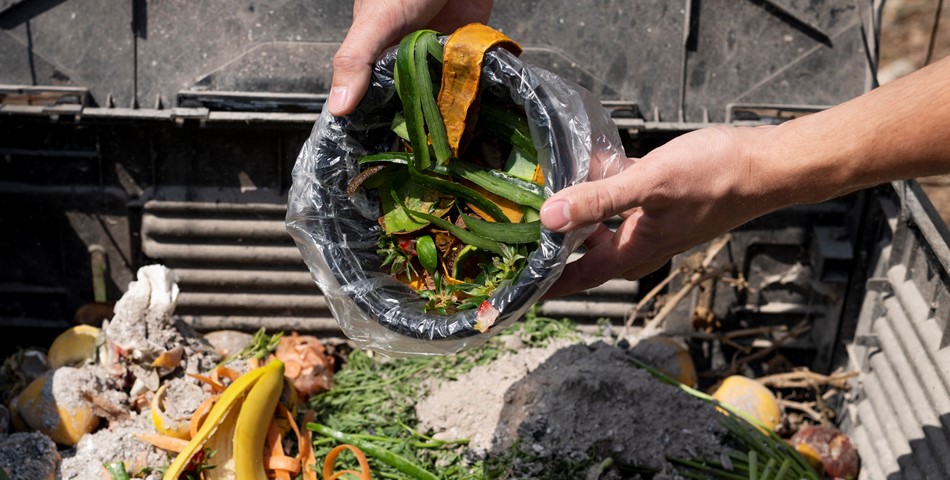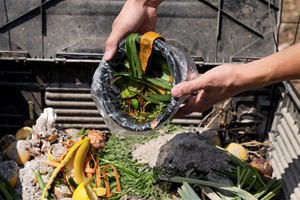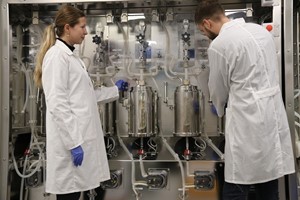In a world grappling with the gargantuan issue of food waste, the concept of upcycling emerges as a formidable solution, revolutionizing the food industry's approach to sustainability and profitability. Upcycling, characterized by the transformation of food byproducts and waste materials into valuable culinary treasures, has gained significant traction as a means to mitigate environmental impact and foster resource efficiency. Reports from Allied Market Research and Global Market Insights estimate the global upcycled food market to be valued at over $50 billion currently, with a projected growth exceeding 5.5% annually. This indicates significant industry growth and potential for investment. The UN Environment Programme estimates that roughly 1/3 of all food produced globally gets wasted. Upcycling offers a solution to divert food waste from landfills and create valuable products.
The Upcycling Magic
Upcycling, synonymous with creative reuse, embodies the ethos of repurposing materials to confer upon them renewed worth and functionality. It entails a process wherein items destined for landfills undergo a metamorphosis, emerging as innovative products of enhanced value. Unlike recycling, which involves breaking down materials to create similar products, upcycling preserves the integrity of the original material, thereby yielding entirely new and often bespoke creations.
Benefits of Upcycling
The allure of upcycling transcends its environmental merits, extending to economic advantages and product distinctiveness. Businesses embracing upcycling practices stand to reduce waste disposal costs while simultaneously fostering a culture of resourcefulness. Moreover, upcycled products, characterized by their unique charm and individuality, resonate with consumers seeking alternatives to mass-produced commodities.
Upcycling Feast: Reimagining Food Waste in the Food Industry
Within the food industry, upcycling assumes a paramount role in addressing the pervasive challenge of food waste. From rescuing "ugly" produce to transforming byproducts into culinary delights, innovative initiatives abound, showcasing the multifaceted potential of upcycling to redefine the sector's sustainability landscape.
Giving "Ugly" Produce a Second Chance
Companies like Imperfect Foods have pioneered initiatives to salvage cosmetically imperfect fruits and vegetables, thereby mitigating the staggering volume of produce discarded due to aesthetic imperfections. By delivering these otherwise overlooked items directly to consumers, such enterprises forge symbiotic relationships between farmers and conscientious shoppers, while simultaneously curbing food waste.
Transforming Byproducts into Treasures
Enterprises such as ReGrained and Blue Bottle Coffee exemplify the ingenuity inherent in upcycling, repurposing byproducts from brewing processes into nutritious culinary staples. By harnessing spent barley and coffee grounds to craft superfood flour and substrate for mushroom cultivation, respectively, these companies epitomize the transformative potential of upcycling within the food industry.
Unearthing Culinary Treasures from Food Waste
Innovative ventures like Sqwish and Wegmans exemplify the culinary ingenuity inherent in upcycling practices within the food industry. Sqwish transforms leftover fruit pulp from juice production into delicious, squeezable snacks for children, thereby reducing food waste while offering a healthy and convenient food option. Similarly, Wegmans, a supermarket chain, implements a robust upcycling program by utilizing leftover vegetable scraps to craft flavorful vegetable broths and soups. These initiatives not only minimize waste but also provide consumers with delicious and cost-effective culinary options, demonstrating the transformative potential of upcycling in creating value from food scrap
Upcycling Innovations
Fermentation emerges as a cornerstone of upcycling endeavors, facilitating the transformation of food scraps into an array of flavorful condiments and beverages. Scientists are exploring novel fermentation techniques to create innovative food products. Wild Earth, for instance, utilizes fungal fermentation to produce mycoprotein, a complete protein source derived from fungi, for meat alternatives. This approach not only offers a sustainable protein source but also showcases the versatility of fermentation in creating novel food solutions.Top of Form
Benefits of Upcycling Food
Adopting upcycling practices yields manifold benefits for food businesses, ranging from reduced environmental impact to enhanced brand image and product innovation. By diverting food waste from landfills, fostering resource efficiency, and catering to evolving consumer preferences, upcycling epitomizes a paradigm shift toward sustainability within the food industry.
A 2021 report by WRAP, a UK-based organization focused on resource efficiency, revealed that global food waste accounts for 8-10% of greenhouse gas emissions. This highlights the significant environmental impact that upcycling in the food industry can potentially address. As businesses increasingly embrace the principles of creativity, resourcefulness, and environmental stewardship, the era of upcycling heralds a new chapter in the quest for a more sustainable and resilient food system.Top of Form Upcyling emerges as a potent catalyst for transformative change within the food industry, offering a sustainable solution to the pervasive issue of food waste.
foodHQ Staff













